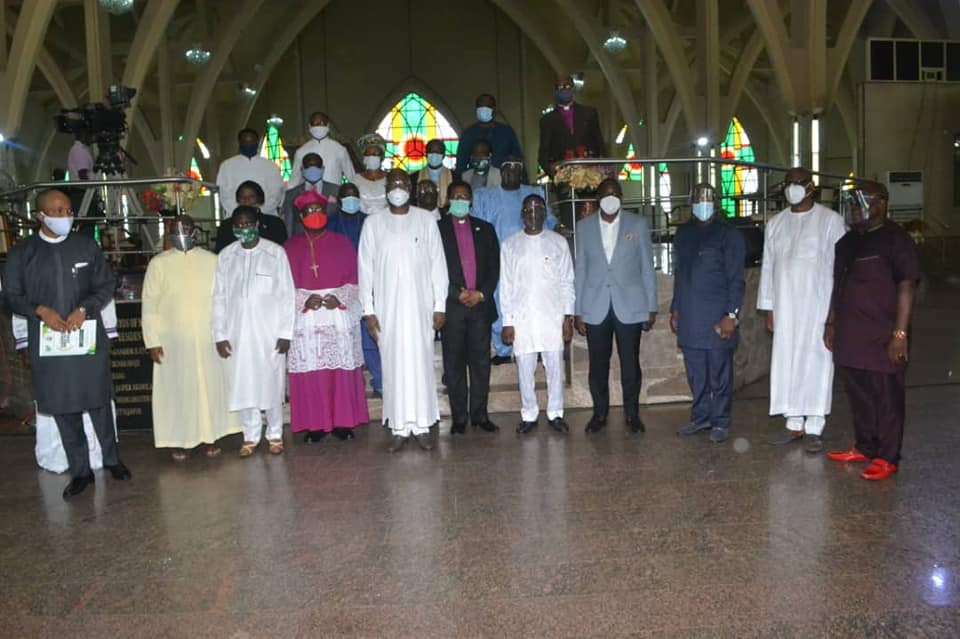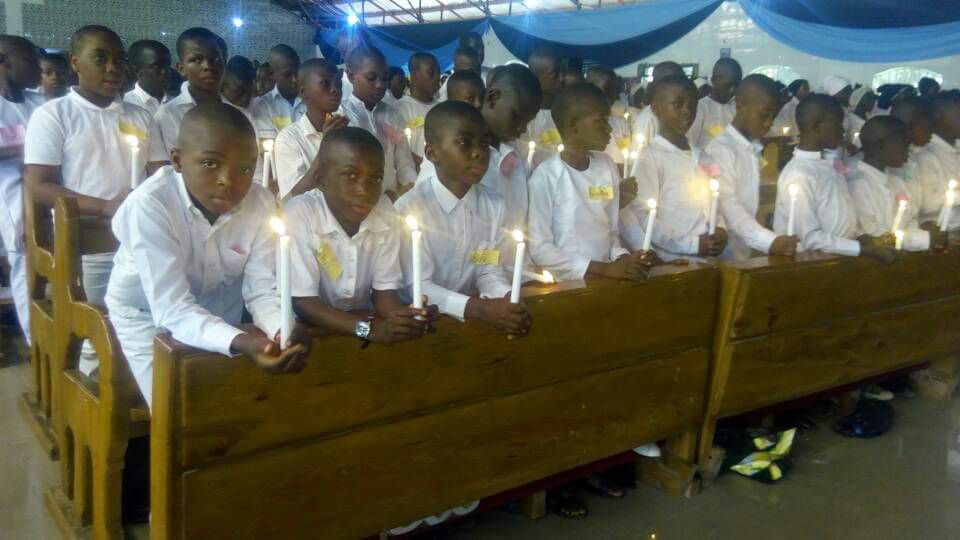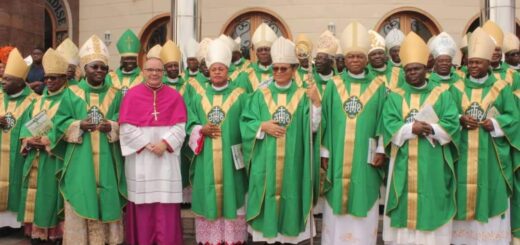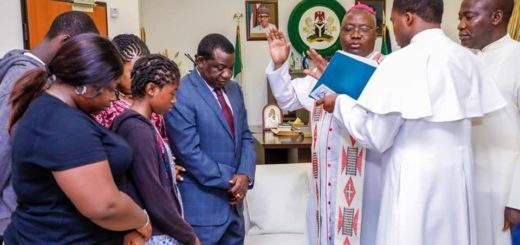Reflection during the Interdenominational Prayer Session for the Defeat of the Covid-19 Pandemic
by ARCH BISHOP · July 5, 2020
by Most Rev. Ignatius a. Kaigama, Catholic Archbishop of Abuja, at the National Christian Centre, Abuja, 5.7.2020,
I begin by offering to God praise, adoration and thanksgiving, and our gratitude to the Christian Association of Nigeria for hosting this prayer event. I am so highly impressed and edified that the leadership of the Nigeria Inter-Religious Council (NIREC) inspired and encouraged Christians and Muslims in Nigeria, each according to their faith tradition to fast and pray to seek God’s intervention for the defeat of the COVID-19 disease. This positive intervention is what the adherents of the two major religions, Christianity and Islam need to do more often, to always seek areas of collaboration to promote social harmony, progress and peaceful co-existence. May God hear our prayers to halt the spread of the deadly coronavirus, heal those already infected and grant eternal rest to those who have died from it.
Turn on the TV or the radio, glance through the papers, the news are nearly always about COVID-19! The numbers of infection are on the rise and casualties are growing. All we can say is: “O Lord, Come to our assistance. Lord, make haste to help us”.
The coronavirus is altering global affairs and social existence. I imagine that even after a vaccine eventually neutralizes the virus, society will still feel the social consequences of COVID-19 for decades. The COVID-19 pandemic is like other times in history of famines, wars and plagues; though none perhaps has so effectively brought the entire world to so nearly complete a standstill!
In his book, “The City of God”, St. Augustine observed that both the good and the wicked experience the ups and downs, inconveniences, annoyances, joys, misfortunes and bitterest sorrows of life. The spiritual persons will make good use even of the inconveniences and misfortunes of this life, growing in patient endurance, hope, and charity. The unspiritual persons will simply grow more bitter, resentful, suspicious and ill-tempered by the same experience. We are spiritual, so, let us learn our lessons from this global calamity about our common humanity, the fragility of our lives and to rediscover the things that really matter.
In the face of famines, wars and plagues throughout history, the Church has regularly exhorted Christians to repentance and prayer as we are doing today, believing that if we repent, God will hear us (cf. Mk 1:15), and as 2 Chronicles 7:14 assures us, if we humble ourselves, pray and seek His presence and turn from our wicked ways, He will listen from heaven and forgive our sins and restore our country and our world.
As Christians, even in tough and challenging times we should know that God is in charge and in control and means well (cf. Rom 8:28). His ways are higher than our ways and his thoughts than our thoughts. (cf. Is 55:9).
In the wake of disasters or grave danger, the tendency is to pray feverishly but as soon as it passes, we return to ground zero of prayer. Obviously, this is a classic case of panic spirituality. We must not run to God only when in the face of danger. God gives us 168 hours a week, 1440 minutes a day. How much time do we spend in conversation with Him? Yet we spend far more time watching television, speaking to friends on the phone or engaged in social media activities.
Jesus calls us to “pray always”. Prayer in our lives should be consistent, persevering and fervent. Pope Francis admonishes us: “Never abandon prayer, even when it seems pointless to pray”. We are a people who believe that prayer, fasting, and almsgiving are as much a part of our response to the pandemic as those working on the frontlines trying to offer medical assistance or to find a vaccine or cure.
Social distancing does not mean distance from God or to come to Him only when there is “fire on the mountain”. Neither does it mean that we pray so much to God whom we cannot see, but neglect to do good to the neighbours we see. Social distancing does not mean being cold, insensitive, indifferent or antisocial towards others.
We need God’s help. He is our refuge, our stronghold, our rock, our shield, our mighty help, our fortress and our saviour. Without daily connecting to Him in prayer we will either be too full of ourselves or too empty of energy, inflated or depressed. It is said that there are no hopeless situations; there are only people who have grown hopeless and prayer-less about their situations.
Many of us want God to answer us now, now when we pray. Some even give God ultimatums and conditions. If He does not grant our prayers quam primum, we stop praying to Him or change our Church, becoming “nomadic Christians” in search of a “better church” or pastors who preach eloquently not necessarily the cross of Christ but about prosperity and fast miracles.
In the pain and challenges of COVID-19, let us learn these lessons: the fear of God is the beginning of wisdom; repent of our sins; love without boundaries and consider the interest of others above our personal interests.
May God help our researchers to find a cure, our leaders to provide care for the suffering people, to medical personnel, the grace of perseverance, the sick to be healed, the dead to rest in peace, the bereaved to be consoled and for us still alive, to comply faithfully with medical and social guidelines, but above all, to return to a more solid and unpretentious relationship with God and love of neighbour beyond ethnic and religious considerations.





